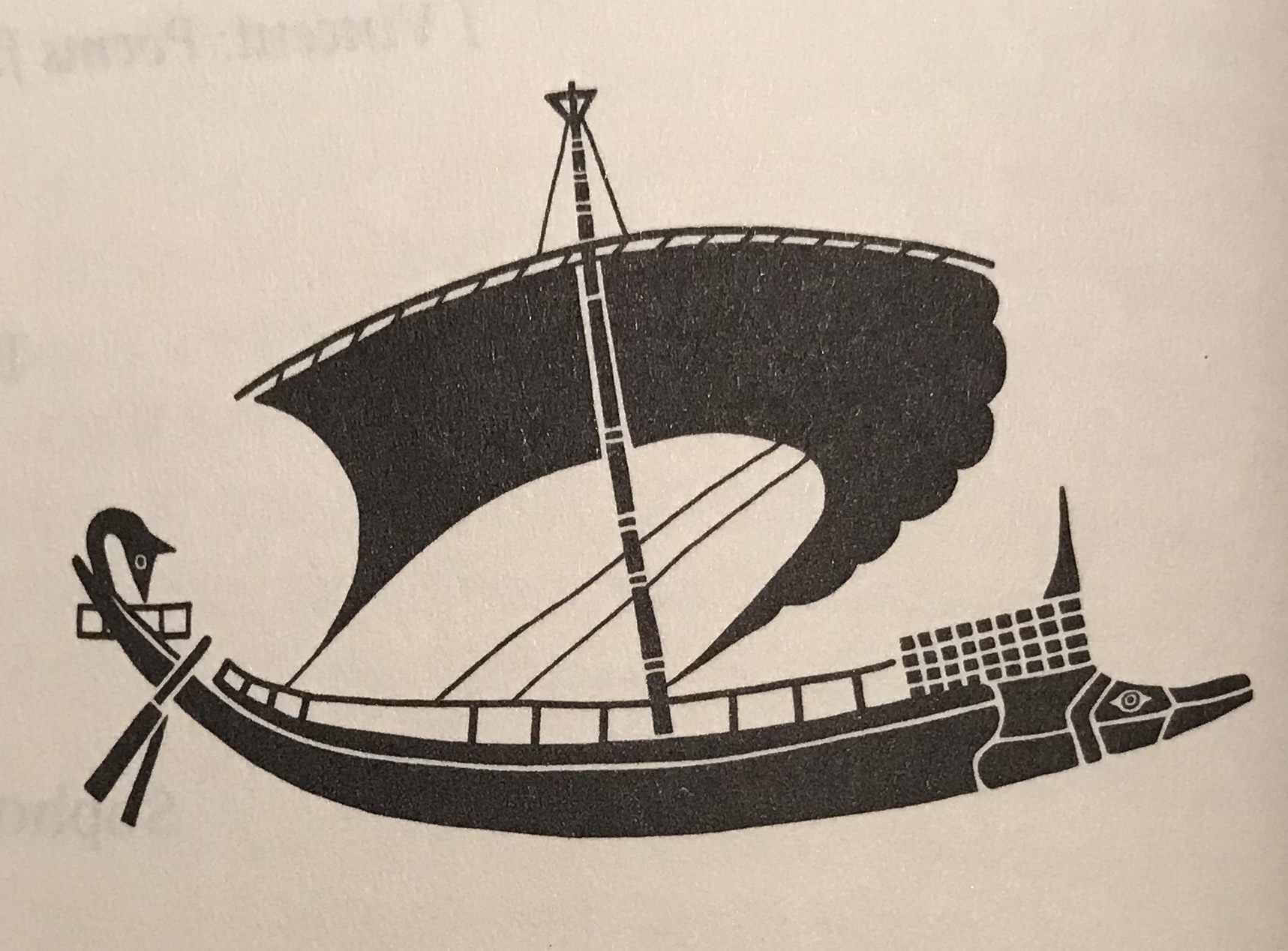Your weekly poem, Apr. 21: “The Odyssey” by Homer, trans. Robert Fagles

A poem selected by our director Nicholas Allen, Baldwin Professor in Humanities
Dear friends,
Years ago we used to go to the Greek islands in the May time. From that other Athens we broke for Piraeus and the ferry to Naxos, from where we sailed to Koufonisia, Schoinousa, Folegandros. I remember a sunny day on the ferry deck with a Swiss lady who shrieked with delight at her first sight of a dolphin clear out of the water, and the ramble of a farmer on his donkey down the stone steps of Amorgos, perched before the evening’s hay harvest, peppered with red poppies. Now I grow rosemary and basil in my front garden for the people who walk by, an Aegean transport, the herbs a perfume the island youth wear on their own evening promenades.
For all that I found myself becalmed this wet and grey Sunday. As I daydreamed about other places I remembered the Kolymbetra Gardens in the Valley of the Temples at Agrigento in Sicily. This Mediterranean outpost bears the influence of many cultures, of Carthage, Akragas and Syracuse, and Arab and Christian later. Watered by tanks and channels that are millennia old, the garden, shaded with the leaves of olives, lemons and limes, is an echo of the garden that great Greek sea-farer Odysseus finds when he comes upon Calypso. Odysseus, that man of tactics, fox sly and hardy, is a hero for his unrelenting intelligence. As I turned to Robert Fagles’s translation, which was the first that ever made these old words sing to me, I thought of the determination we need, like Odysseus, Penelope and Telemachus, to make the long journey through. The Odyssey is the work of other worlds than ours. But its qualities of ingenuity and refuge remain, nurtured as they are in the first entrance to Calypso’s garden, verdant and lush.
As always,
Nicholas
‘… A great fire
blazed on the hearth and the smell of cedar
cleanly split and sweetwood burning bright
wafted a cloud of fragrance down the island.
Deep inside she sang, the goddess Calypso, lifting
her breathtaking voice as she glided back and forth
before her loom, her golden shuttle weaving.
Thick, luxuriant woods grew round the cave,
alders and black poplars, pungent cyprus too,
and there birds roosted, folding their long wings,
owls and hawks and the spread-beaked ravens of the sea,
black skimmers who make their living off the waves.
And round the mouth of the cavern trailed a vine
laden with clusters, bursting with ripe grapes.
Four springs in a row, bubbling clear and cold,
running side-by-side, took channels left and right.
Soft meadows spreading round were starred with violets
lush with beds of parsley. Why, even a deathless god
who came upon that place would gaze in wonder,
heart entranced with pleasure…’
Homer, The Odyssey, trans. Robert Fagles
